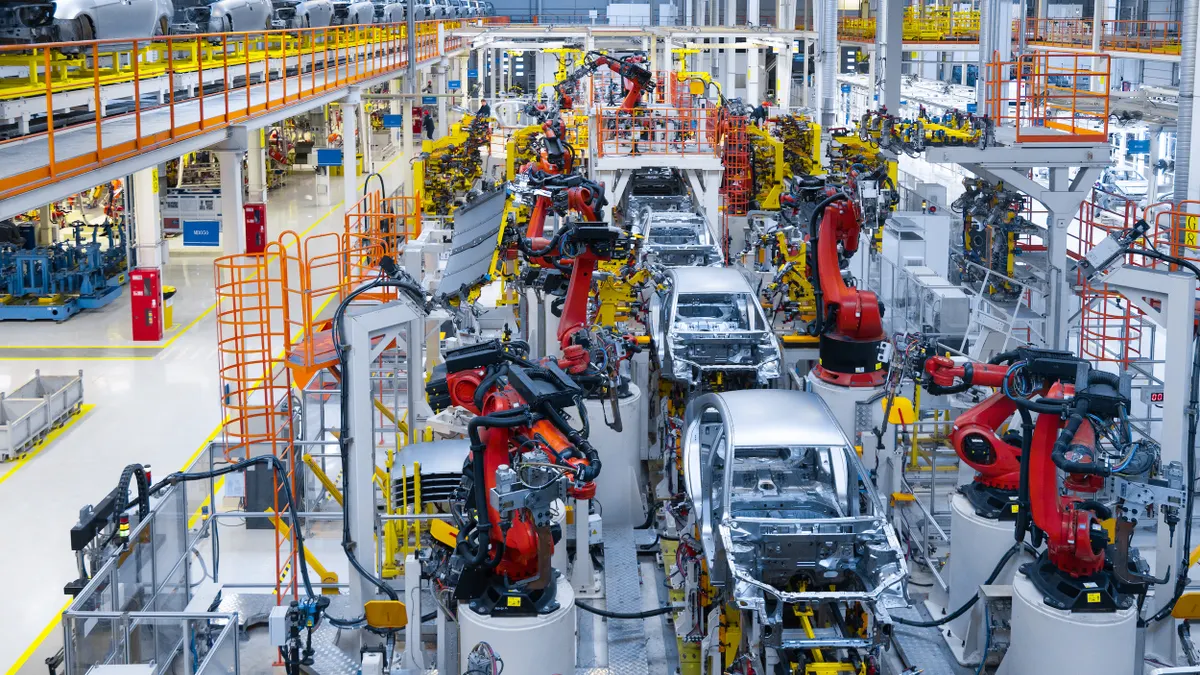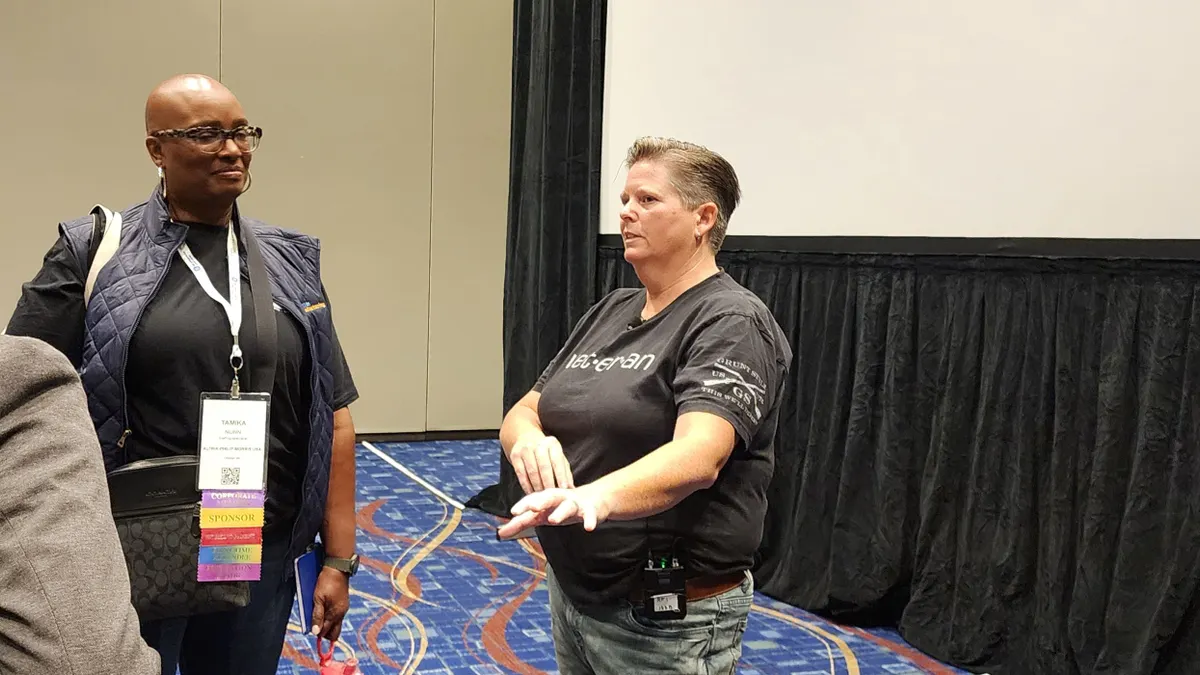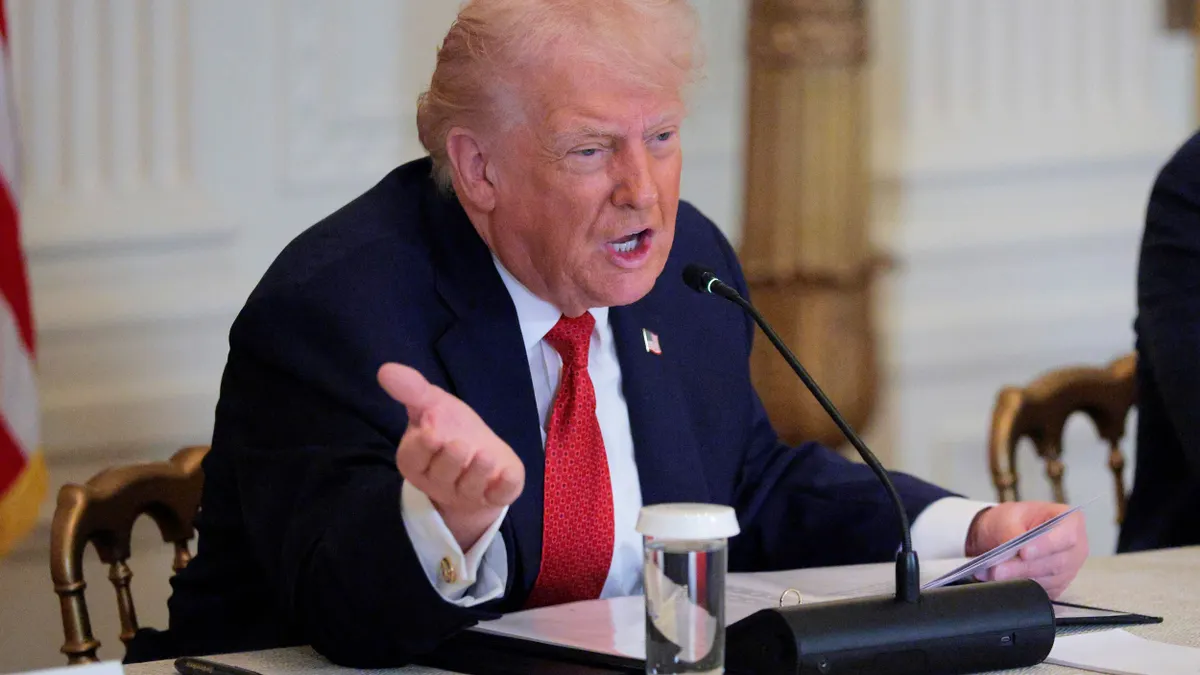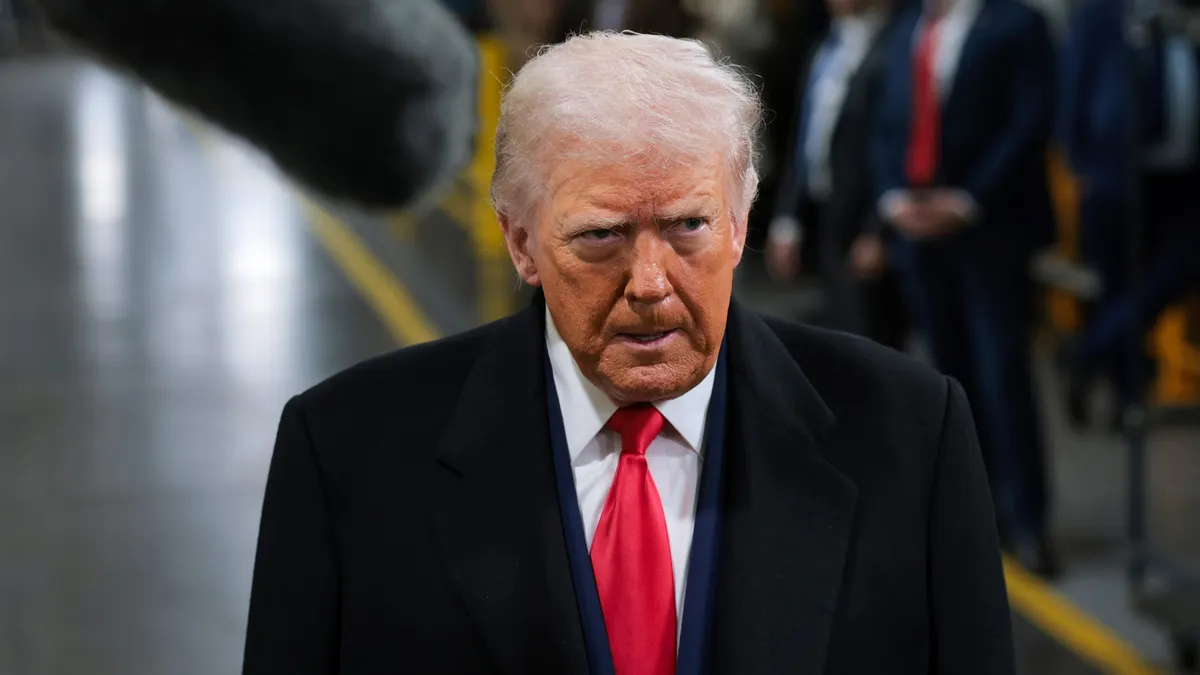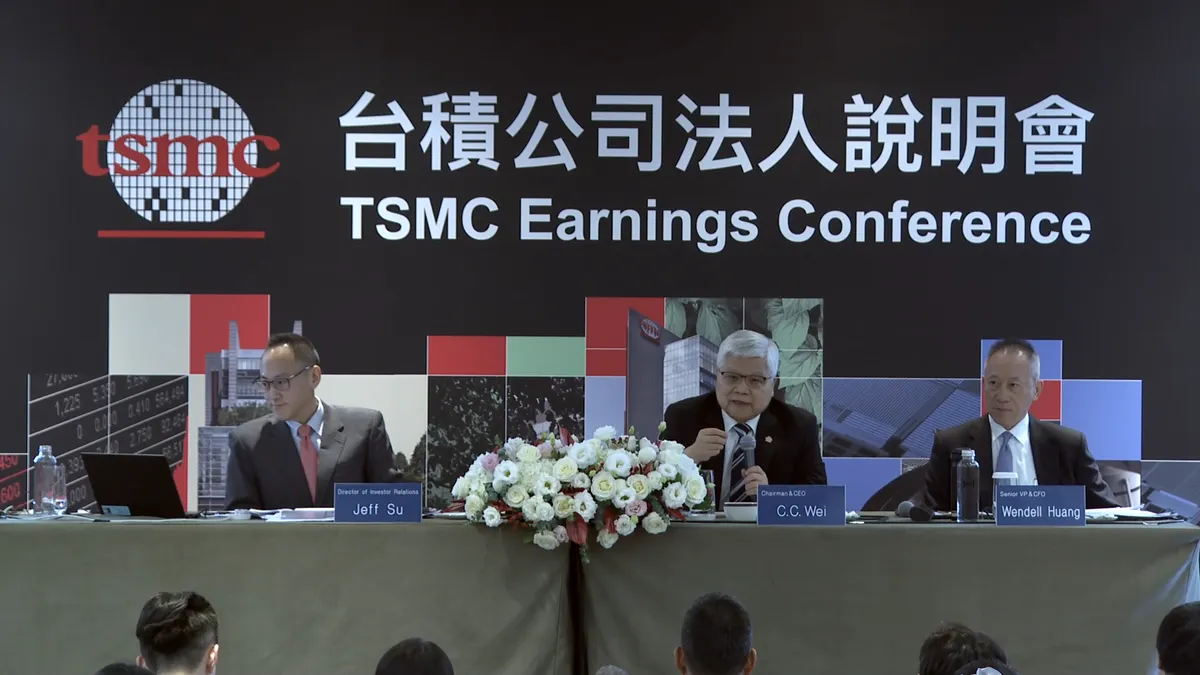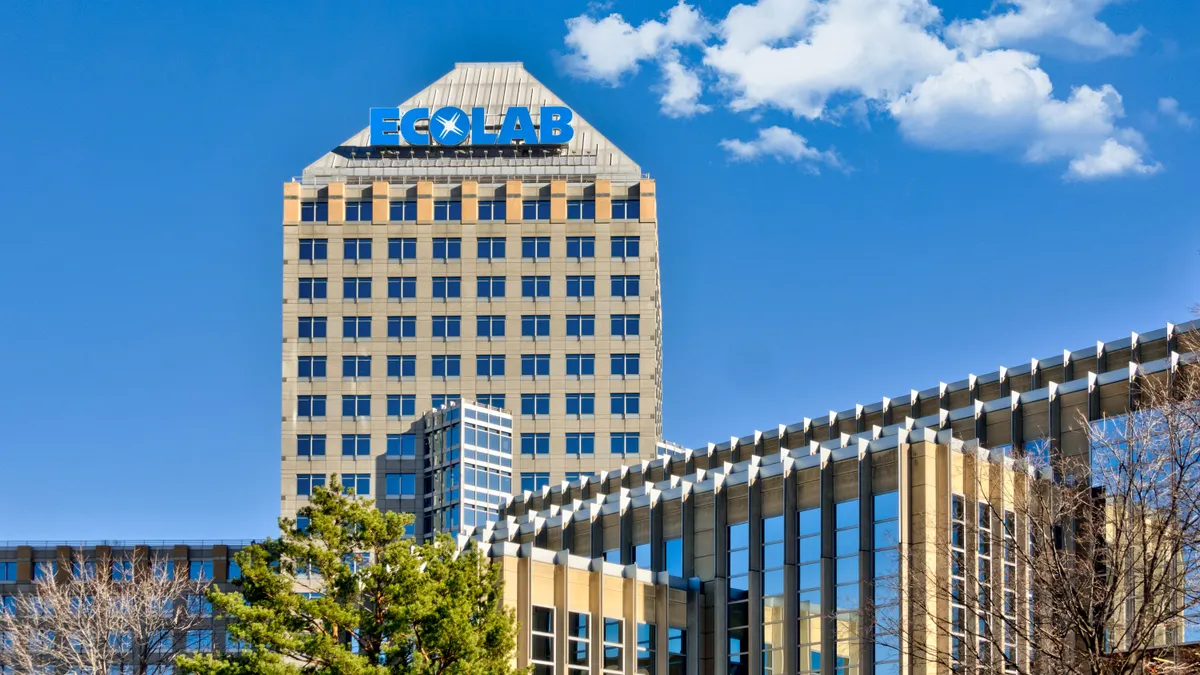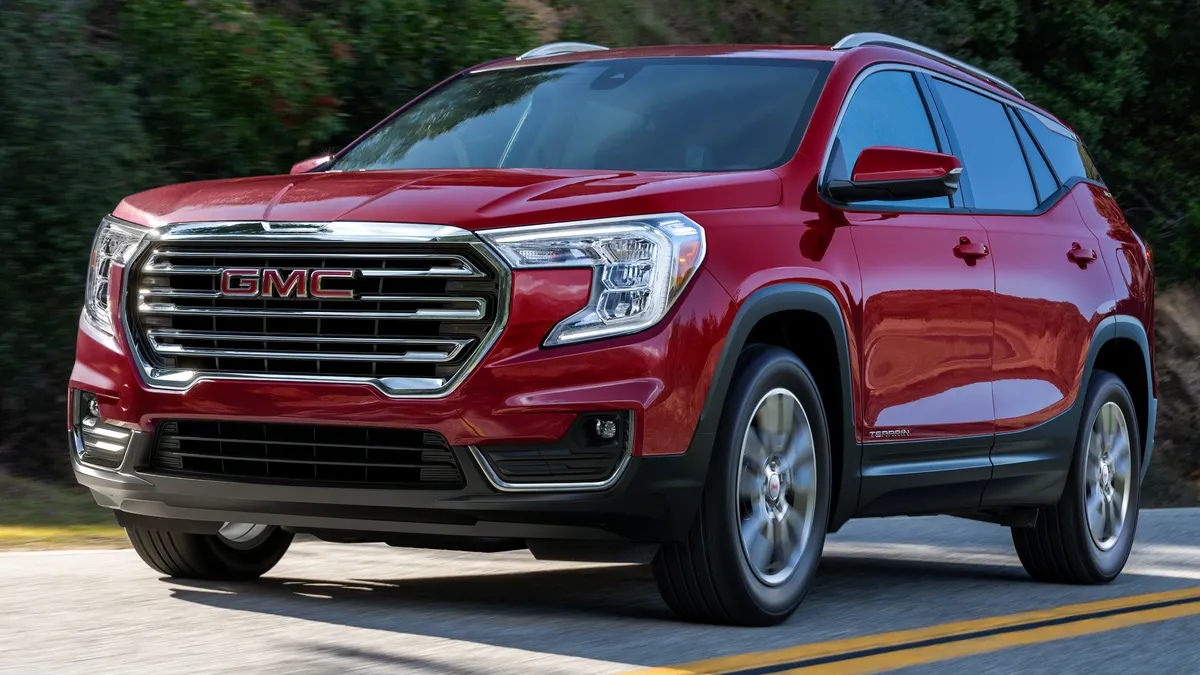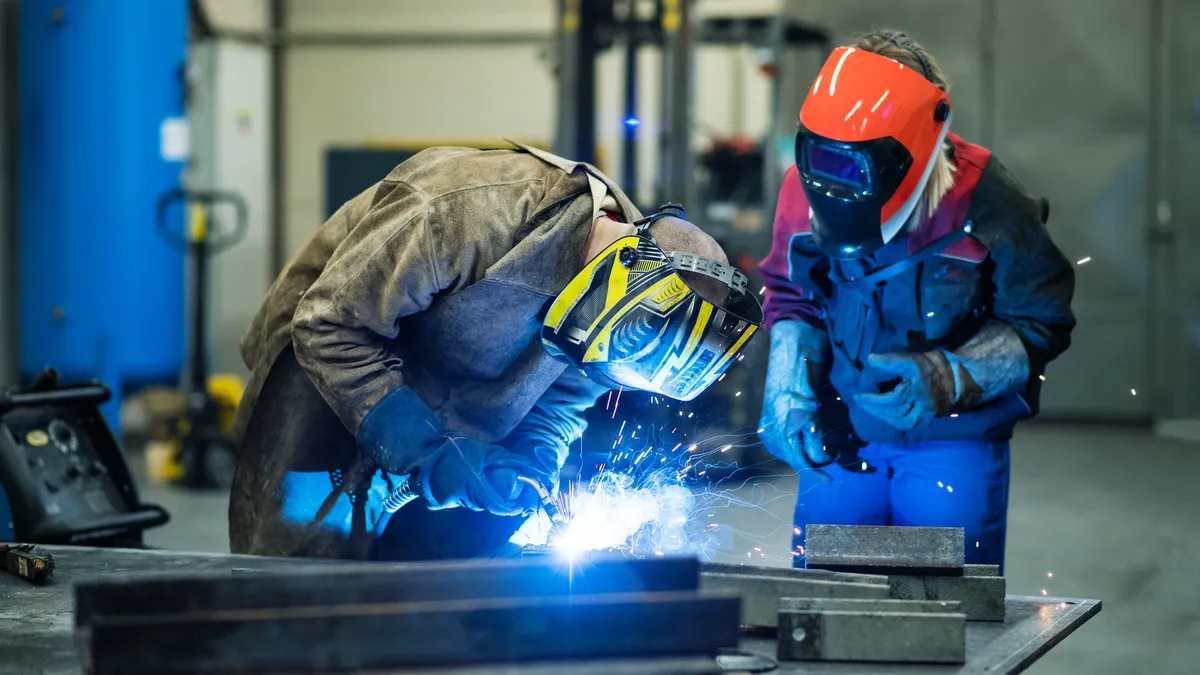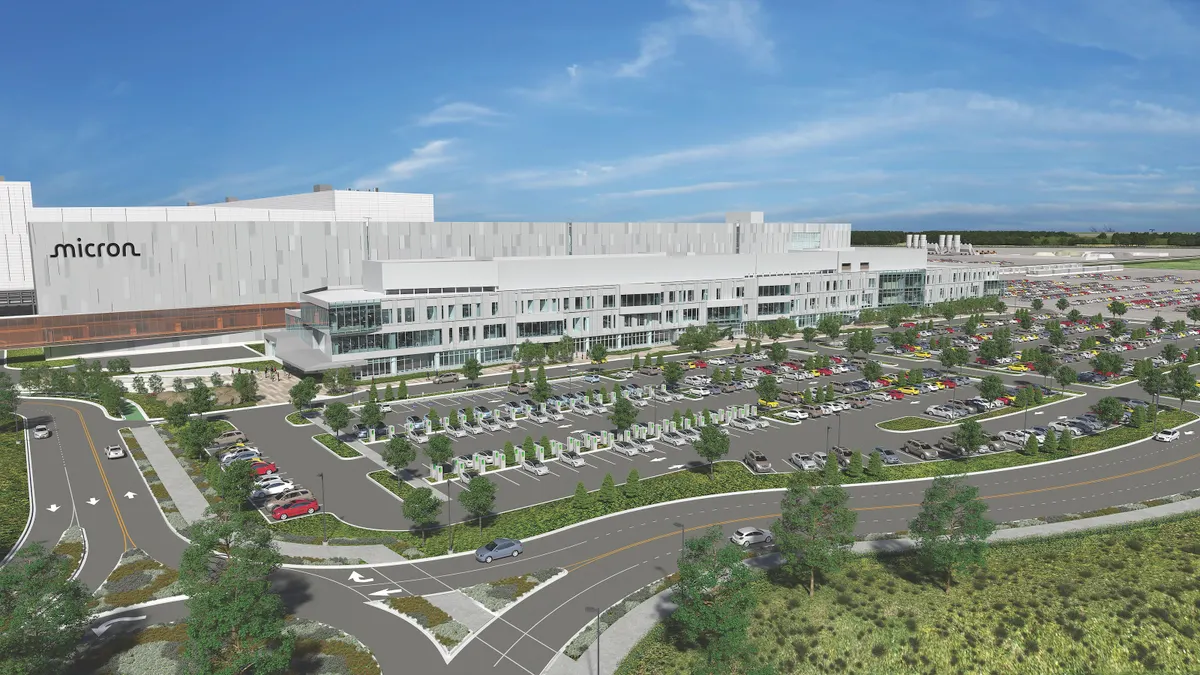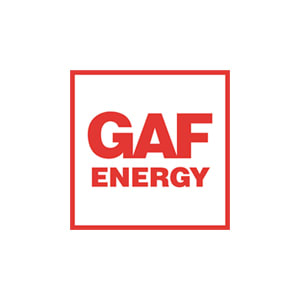During his trip to the Middle East this week, President Donald Trump secured a $600 billion commitment from Saudi Arabia to invest in the United States, including multiple manufacturing-related investments.
The deals represent a new era of partnership between the two countries as they look to strengthen their energy security, defense industry, technology leadership and global infrastructure, according to the White House.
U.S. companies across industries landed deals to build pharmaceutical manufacturing facilities and energy infrastructure, as well as supply energy-efficient passenger planes to the Middle Eastern country.
The U.S. is the second largest provider of goods to Saudi Arabia, behind only China, according to the Arab Gulf States Institute, a Washington D.C.-based think tank.
As part of the commitment, the countries signed a nearly $142 billion defense sales agreement for the U.S. to provide warfighting equipment and services to Saudi Arabia from more than a dozen defense firms.
The White House additionally highlighted plans from Google, DataVolt, AMD and other companies to construct artificial intelligence data centers and supply equipment for the projects in both countries.
Here are just a few of the commitments announced earlier this week.
Shamekh SIV Solutions to expand pharmaceutical manufacturing
Shamekh SIV Solutions is moving forward with its $5.8 billion plan to construct high-tech pharmaceutical manufacturing facilities in Saudi Arabia and the U.S.
The facilities are designed to include automated IV manufacturing capabilities with AI-driven research and clinical development of novel biopharmaceuticals, according to a news release. A groundbreaking for Shamekh’s flagship location in Saudi Arabia is scheduled this fall.
The company is also investing in a Michigan plant focused on high-capacity IV fluid, according to the White House.
GE Vernova details $14.2B in energy initiatives
Energy equipment maker GE Vernova on Tuesday announced initiatives worth up to $14.2 billion for its technology and services to support power generation and grid stability projects in Saudi Arabia.
This effort is expected to play a strong role in supporting the country’s energy goals and transition to be net zero by 2060.
As part of the plans, GE Vernova committed to supply services and equipment to Saudi Arabia’s electric energy company, including heavy duty gas turbines built in Greenville, South Carolina. It also has deals across the next four years with Principal Buyer, ACWA Power and Aramco.
AviLease orders 30 Boeing 737-8 aircraft
Saudi Arabia-based aircraft rental service AviLease signed a deal to order 30 Boeing 737-8 passenger aircraft, marking its first direct order from an original equipment manufacturer.
The strategic investment reflects AviLease’s long-term goal to become a leader in global aircraft leasing and aligns with the country’s Vision 2030 sustainability goals, given the 737’s strong fuel efficiency, Chairman Fahad AlSaif said in a statement. The deal is valued at $4.8 billion, according to the White House.
Despite issues over the years with its 737 Max planes, including two fatal crashes, a global grounding and safety concerns, Boeing has made progress in returning the aircraft to service and increasing production.
Deliveries to AviLease are scheduled through 2032.
Google and PIF commit $10B to global AI hub
Google Cloud and Saudi Arabia’s sovereign wealth fund, known as PIF, are moving forward with their plans to build and operate a global artificial intelligence hub in the Middle Eastern country.
The companies on Tuesday announced a joint commitment of $10 billion to the project, which will enable AI-powered innovation and growth for Saudi and U.S. companies doing business in the region.
As Google brings its cloud infrastructure and AI technology to Saudi Arabia, including models such as Gemini, Imagen and Veo, the new hub will enable developers from both countries to leverage the technology to deliver innovations, reach untapped markets and spur job growth, according to the news release.
Additionally, the AI hub is expected to provide an overall economic benefit of $35 billion to the U.S. and support roughly 11,000 American jobs through increased cloud computing and AI adoption, according to a Google commissioned study.
Google and PIF initially signed off on the plan last fall.
DataVolt signs $20B equipment deal with Supermicro
Data center company DataVolt signed a massive deal to use Super Micro Computer’s energy-efficient, liquid cooling equipment for its AI campus buildouts.
The multi-year partnership agreement, valued at $20 billion, will “fast track delivery of ultra-dense GPU platforms and rack systems” for DataVolt’s AI campuses in Saudi Arabia and the U.S., according to a news release.
Rajit Nanda, CEO of DataVolt, said the company’s vision is to make the most sustainable data centers at scale.
“Partnering with Supermicro guarantees us a U.S.-made supply chain for critical GPU systems and positions DataVolt to accelerate our investment plans,” Nanda said in a statement.
Super Micro Computer is considered a leader in designing and providing components for “green computing,” which maximizes server and data performance while limiting their environmental impact, according to its website.
AMD and Humain pledge $10B to advance AI infrastructure
Advanced Micro Devices and Humain, an AI company owned by PIF, have agreed to invest up to $10 billion to build out AI infrastructure in Saudi Arabia.
As part of the project, the companies said they will deploy 500 megawatts of AI compute capacity over the next five years. When finished, they claim it will be “the world’s most open, scalable, resilient and cost-efficient AI infrastructure.”
The buildout, which includes a data center, sustainable power systems and global fiber connectivity, will be overseen by Humain, according to a news release. Meanwhile, AMD is set to provide its compute portfolio and open software ecosystem.
The collaboration is on track to have capacity ready by early 2026.




